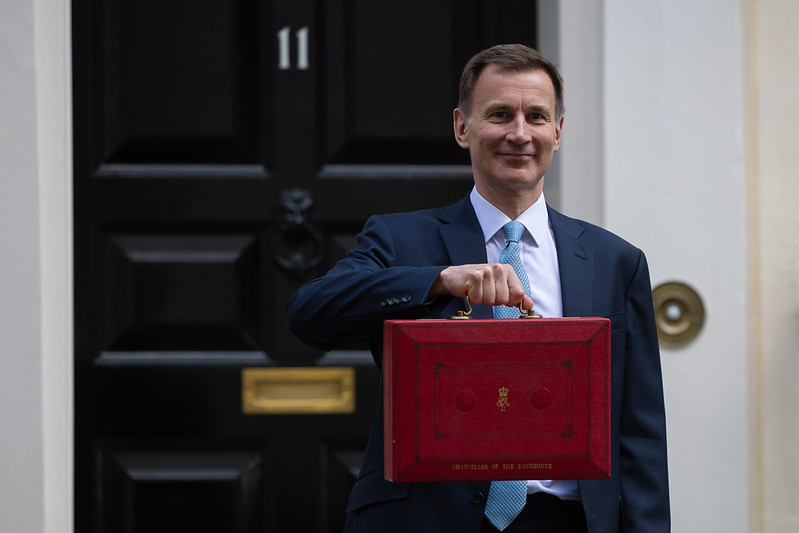
They say the devil is in the details, and the annual budget announced in early March by Chancellor Jeremy Hunt is no exception. The upcoming election looms large in a budget focused on providing headlines, while lacking true substance.
In regards to the budget, Richard Hughes, Chair of the Office for Budget Responsibility, said “some people have referred to that as a work of fiction. That is probably generous, given that someone has bothered to write a work of fiction, whereas the Government has not even bothered to write down their department spending plans underpinning their plans for public services.”
Many of the points announced, including specific ‘permanent cuts in taxation’, are primarily political gimmicks, and, due to fiscal drag, will not have a sustained effect on the cost of living anyway.
Many of the points announced, including specific ‘permanent cuts in taxation’, are primarily political gimmicks, and, due to fiscal drag, will not have a sustained effect on the cost of living anyway.
The 2p cut in National Insurance, the titular feature of the budget, reducing the rate from 10% to 8%, has been confirmed. This reduction in taxation, however, apart from taking approximately 6 months to affect people’s behavior, results in a benefit reaped mainly by higher-income earners, approximately saving someone £450 a year on a £35,000 salary: the more money earned, the more tax saved.
Senior economists have previously suggested eliminating National Insurance entirely, a system so complicated that it allows for political manipulation. The lost revenue, however, would have to be made up elsewhere, likely resulting in an increase in income tax (possibly of 6-10%), which is not something any party wants to be seen as responsible for. Additionally, the thresholds of income tax remain frozen as opposed to adjusting with inflation, meaning that an increase in wages is not being accounted for when considering National Insurance as prices increase, causing this notion of fiscal drag to extend the tax to lower income brackets in comparison to the starting threshold.
I spoke to Dr. Shaun Grimshaw, Lecturer in Economics at the University of Exeter who told me that, “So much of it [the budget] is tinkering, so little of it is long-term planning… fiscal events like this are generally [political] – they’re not good economic policy.”
The budget also provides a forecast of economic growth, predicting a 0.8% increase this year and a 1.9% increase in the next, yielding slightly higher numbers than those predicted by the Office for Budget Responsibility (OBR). Although these statistics appear to be promising, seeing as the government is unlikely to raise taxes further, the policy is missing details on spending plans or cuts thereof (for example on immigration policy), resulting in no impacts or implications that can be derived from a lack of any sort of plan. This omission of trade-offs is present in other points of the budget, such as the 1% increase in day-to-day public spending above inflation and in the extra money pledged toward a paperless NHS. The latter, it was pointed out by Labour, was meant to have been completed by 2020 anyway.
In the words of Milton Friedman, American economist and educator, “There’s nothing so permanent as a temporary government”. These words continue to ring true, as fuel duty was announced to, as expected, continue to be frozen for another year, marking the 13th year that this has not risen with inflation. This view of keeping petrol prices low may seem effective in the short term, but does not consider any long term effects in a cost-benefit analysis, and, Frances Ryan, Guardian columnist, states, this “largely hands money to the rich”.
Non-dom tax status has been confirmed to be abolished and replaced by a “modern, simpler, and fairer” system from next year, undercutting Labour who had planned to use this policy to raise revenue. This was called a “short-term, cynical political gimmick” by Keir Starmer, who stated that there was “not a more obvious example of a government that is totally bereft of ideas”. The entire budget itself was heavily criticized by Starmer, calling Jeremy Hunt and Rishi Sunak “Chuckle Brothers of decline”, and accusing them of using the budget to “give with one hand and take even more with the other”.
“[There is] not a more obvious example of a government that is totally bereft of ideas.”
Keir Starmer
Hunt’s policies were met with backlash from some members of the Conservative Party as well, the windfall tax extension on oil and gas being called “deeply disappointing” by Scottish Tories.
The budget mentions that there is some final tinkering to be done, but lacks any substance for this claim. This ‘pulling a rabbit out of a hat’ method of attempting to constantly change things with a clever new idea may succeed politically, but does not provide any sort of economic stability. Mariana Mazzucato, Italian economist and Professor of Economics at UCL, stated that “Keir Starmer’s response must be more ambitious than riding on Tory failures. It must put forward a true mission-oriented plan for investment-led growth… only this can help Labour shake off old economic thinking and respond with a different vision for the economy.”


